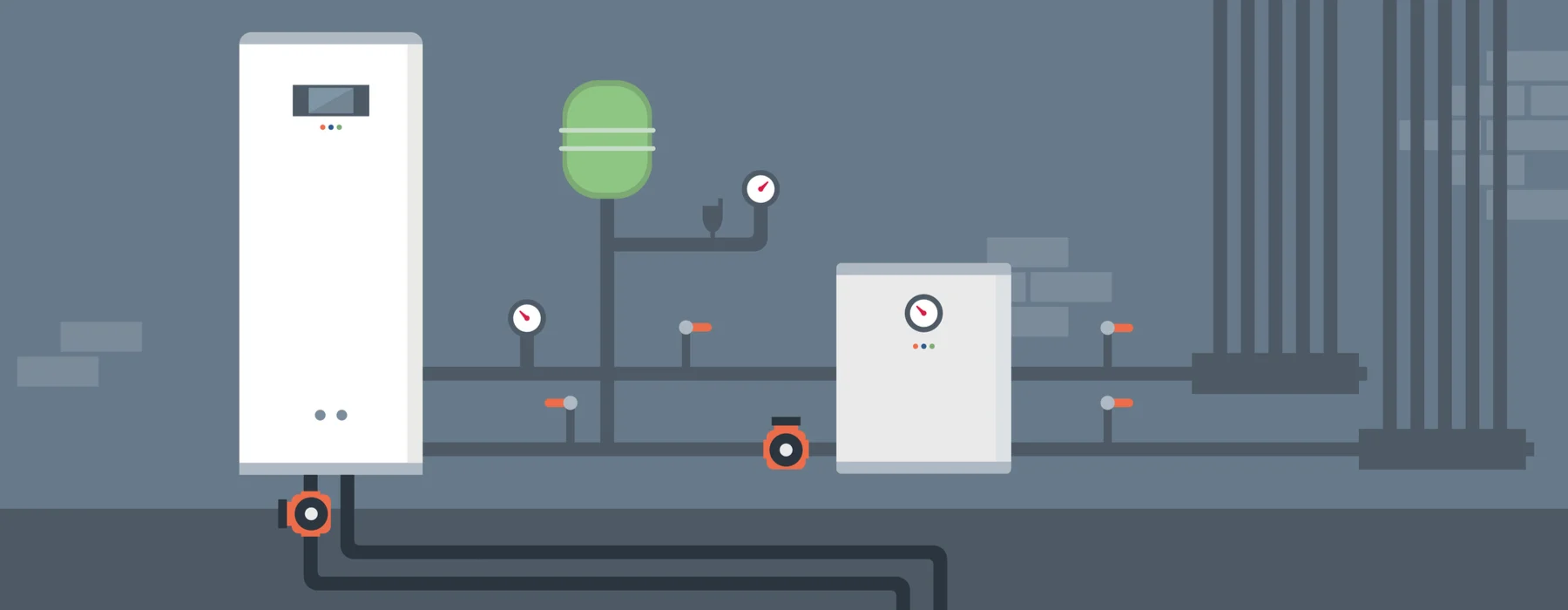Lowering the overall building energy consumption is a must for building owners for increase the savings. While there are several factors that contribute to the total energy expenditure, water heating represents a considerable amount of energy expense. According to the NYC UGC, hot water systems represent 10% of the total energy consumption, and 19% of total energy consumption in multifamily buildings.
Traditionally, hot water systems rely on natural gas or heating oil. This opens a lot of opportunities to cut the emissions and achieve higher savings. However, this is true when the source of energy for the heating systems is from a clean energy source.
Adding to the challenges in hot water systems is that they must be economically viable for building owners. In regions with high kWh price like the New York City, resistance heaters are not a viable option since they offer low efficiency. A much better option would be heat pumps, which can effectively lower the energy consumption for over 50% when compared to resistance heater with the same capacity.
How to Choose an Efficient Heat Pump Water Heater?
When comparing water heaters, you should look at the Energy Factor (EF). Energy Factor is the ratio of heating output to energy output. This means higher the EF value, lower is the electricity consumption.
For electric hot water system to quality for the ENERGY STAR label, they must meet the following conditions –
- If the capacity is 55 gallons or lower, the minimum EF should be 2.00
- If the capacity if above 55 gallons, the EF minimum energy factors should be 2.20
An EF of 2.00 means that the water heater is able to provide 2 units of heat for every unit of electricity consumed. So essentially, a 55-gallon ENERGY STAR water heater deliver a minimum of 6,824 BTU (2kWh) of heat for every kWh consumed. For water heater with over 55-gallon capacity, the requirements are even more demanding as they must deliver a minimum of 7,506 BTW (2.2kWh) of hear for every kWh consumed.
There are no resistance heaters that qualify for the ENERGY STAR label. This is because resistance heaters operate with an EF of below 1.00. The reason is that they convert the electricity directly to heat, while heat pumps user inverse refrigeration cycle to increase the heat output per kWh.
Note: a hybrid solar and electric water heater qualifies for the ENERGY STAR label if the solar energy factor (SEF) is at least 1.8.
Choosing an ENERGY STAR water heater is beneficial as apart from qualifying based on the EF, they must also have a minimum warranty period of 6 years and must meet the UL 174 and UL 1995 standards.
Do Natural Gas Water Heater Come with ENERGY STAR Label?
The short answer is Yes, they do. Gas fired water heaters can quality for the ENERGY STAR label. In such cases, the EF depends on the water storage capacity and the type of heater.
- A minimum of 0.67 EF for gas heaters with storage tank of up to 55 gallons
- A minimum of 0.77 EF for gas heaters with storage tank of above 55 gallons
- A minimum of 0.90 EF for tankless gas heater
- A minimum of 1.2 SEF for hybrid solar and gas water heater
However, for the new NYC buildings once LL154 comes into effect, gas fired heater will no longer be an option. Even though these heaters have ENERGY STAR label, their operation depends on natural gas.
For new construction below 7 stories that are submitted by 31 December 2023, and new construction with 7 stories or above submitted by 1 July 2027, are allowed to have gas heaters. For existing building, an electric water and space heating is required only if they undergo major renovation.
Combining Electric Water Heater with Solar Collector
Electric water heater when coupled with a solar collector, renewable generation system, or a combination of both can effectively reduce the operating costs. A solar collector reduces the workload of the water heater system as the collector heats some of the water directly. Clean energy generation systems like solar panels and wind turbines can generate electricity that can be used by the heat pumps.
In both cases, the electricity consumption of the water heating system is reduced which results in lower operation costs and also increases savings.
Author’s Bio
Michael Tobias, PE, is the principal and founder of NY Engineers. He leads a team of over 50 MEP/FP engineers. Although New York Engineers main headquarters are in NYC and Chicago the business has led over 1,000 engineering projects in New York, New Jersey, Connecticut, Pennsylvania, Florida, Maryland, and California, as well as Malaysia and Singapore. Michael is an advocate for green technology and energy efficiency, and approaches engineering as a vehicle to raise the quality of life.



